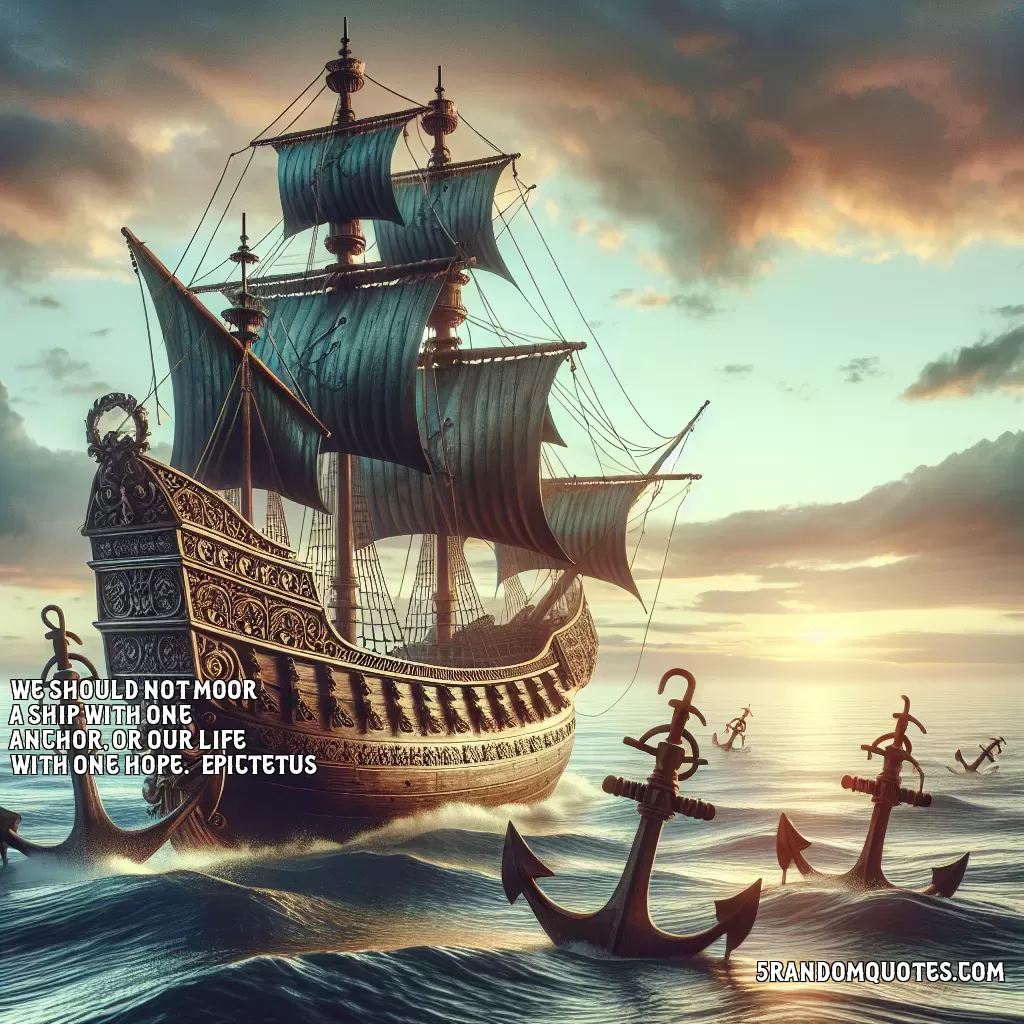
We should not moor a ship with one anchor, or our life with one hope. – Epictetus
Author: Epictetus
👁️ 41 views

We should not moor a ship with one anchor, or our life with one hope. – Epictetus
👁️ 41 views
This quote by Epictetus, a Stoic philosopher, suggests the importance of not relying too heavily on a single source of stability or hope. Just as a ship needs more than one anchor to remain stable in the water, a fulfilling and resilient life requires diverse supports and aspirations. By spreading our hopes and investments across multiple areas, we are better prepared to withstand challenges or disappointments. This approach encourages flexibility and prevents one's entire sense of purpose or happiness from being jeopardized by the failure of a single venture or expectation. In essence, it is a call for balance and resilience in how we structure our lives and dreams.
Quote By: Epictetus

Success is not just about earning a living; it's about creating a life that i...
👁️ 61 views
Author:
Jim Rohn
#job motivational quotes

Success usually comes to those who are too busy to be looking for it. Henry...
👁️ 61 views
Author:
Henry David Thoreau
#job motivational quotes

Success is not the key to happiness, but happiness is the key to success. Lov...
👁️ 43 views
Author:
Albert Schweitzer
#job motivational quotes

We should not moor a ship with one anchor, or our life with one hope. – Epict...
👁️ 42 views
Author:
Epictetus
#job motivational quotes

Success isn't just about what you accomplish at work, but about the impact yo...
👁️ 41 views
Author:
Margaret Mead
#job motivational quotes

Success is not the key to happiness, it's the happiness found in your work th...
👁️ 38 views
Author:
Dostoevsky
#job motivational quotes

Success doesn’t just find you; you have to go out and get it.
👁️ 38 views
Author:
Madam C.J. Walker
#job motivational quotes

Success in your career is not just about climbing the ladder; it's about buil...
👁️ 35 views
Author:
Mao Zedong
#job motivational quotes
Epictetus (c. 55-135 AD) was a Greek Stoic philosopher born a slave in Phrygia, later gaining his freedom and establishing a school of philosophy in Nicopolis, Greece. His teachings emphasized the importance of inner virtue and self-control over external circumstances, encapsulated in his famous assertion that it is not events themselves that disturb us, but our judgments about them. His ideas have profoundly influenced both ancient and modern philosophy, particularly through the writings of his student Arrian, notably in the "Discourses" and the "Enchiridion."
Bio added on: 2025-02-17 00:56:52